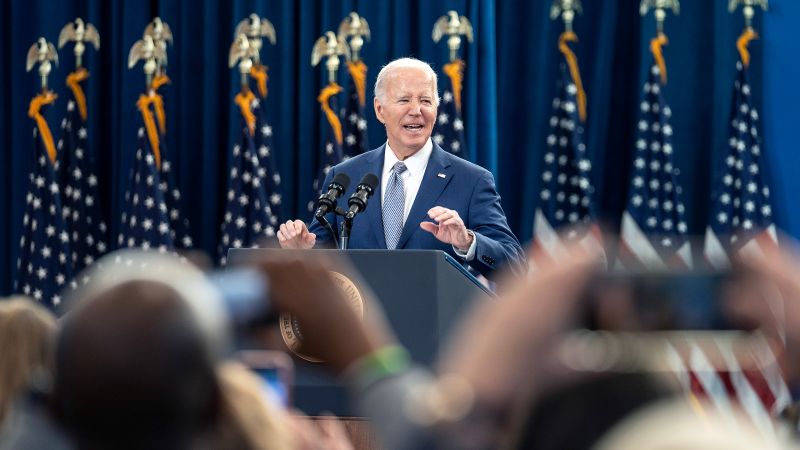When Americans go to the polls in November, President Joe Biden will have impacted the finances of about 4 million voters by canceling their student loan debt. Despite facing legal challenges that derailed his signature debt relief program, Biden’s administration has forgiven more student debt than any previous administration. Sixteen million people received notification of eligibility for loan forgiveness under Biden’s program, which was later blocked by the Supreme Court, leaving many borrowers in limbo.
The Biden administration has made efforts to expand loan forgiveness options for select groups of borrowers, such as public-sector workers, disabled individuals, and those defrauded by for-profit colleges. While approximately 9% of federal student loans have been canceled since Biden took office, the rejection of a forgiveness program by the Supreme Court halted the cancellation of a significantly larger amount. The administration is working on a new forgiveness program with different legal grounding, expected to be revealed later this year.
Despite the setback from the Supreme Court decision, Biden remains committed to addressing student loan debt and has criticized the justices for blocking relief. Democratic Senator Elizabeth Warren has praised Biden’s efforts to cancel debt and contrasted them with former President Trump’s administration, which obstructed access to existing forgiveness programs. Under Biden, relief has been provided to borrowers who were misled by their colleges and to public-sector workers through the Public Service Loan Forgiveness program.
While some advocates believe the administration’s failed attempts at implementing significant student loan forgiveness highlight the challenges posed by a conservative-leaning Supreme Court, they acknowledge the importance of the relief provided to nearly 4 million borrowers. Biden’s focus on student debt forgiveness remains a priority for his administration, as evidenced by ongoing efforts to develop alternative forgiveness plans. Despite progress in forgiveness programs, little has been done to address the root issue of high college costs, with proposals for free community college and broader college affordability still pending in Congress.
Overall, student loan debt remains a critical issue for voters, with a significant percentage of younger voters emphasizing its importance in presidential discussions. The NAACP has been actively involved in advocating for policies that ensure equitable access to college education without burdening students with debt. While progress has been made in addressing student loan debt, ongoing efforts are necessary to tackle the high cost of college and ensure that relief reaches as many borrowers as possible.


